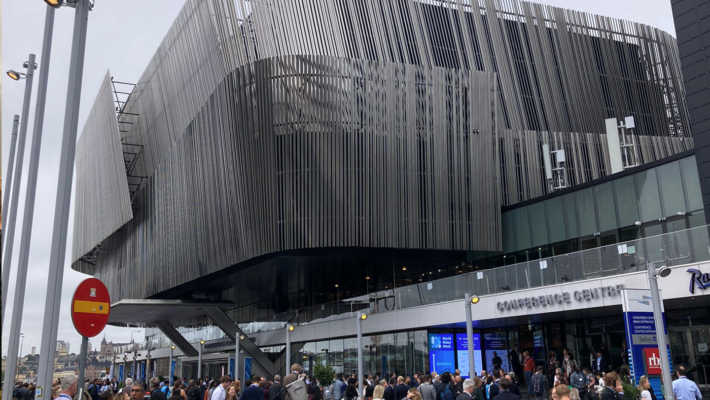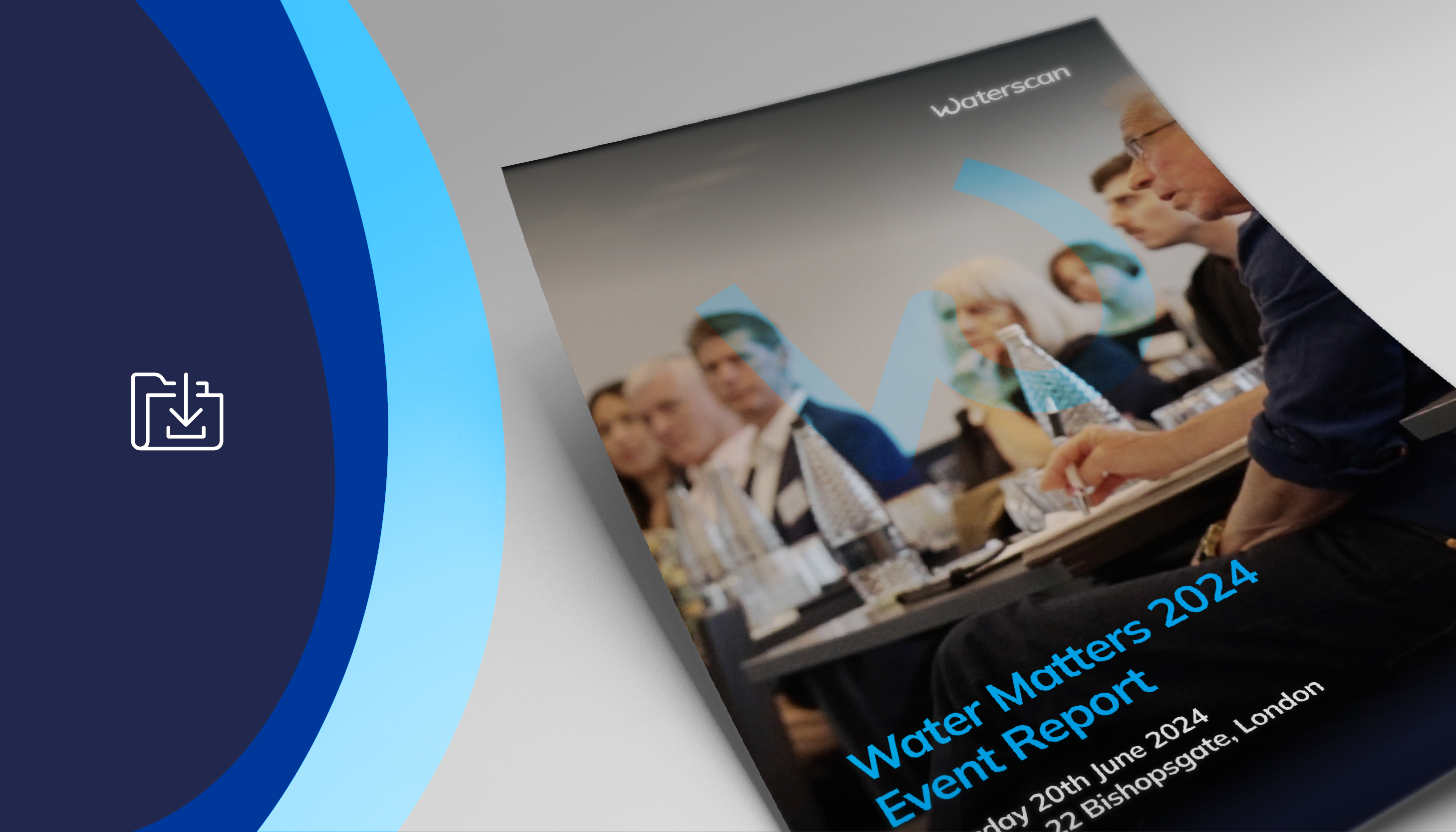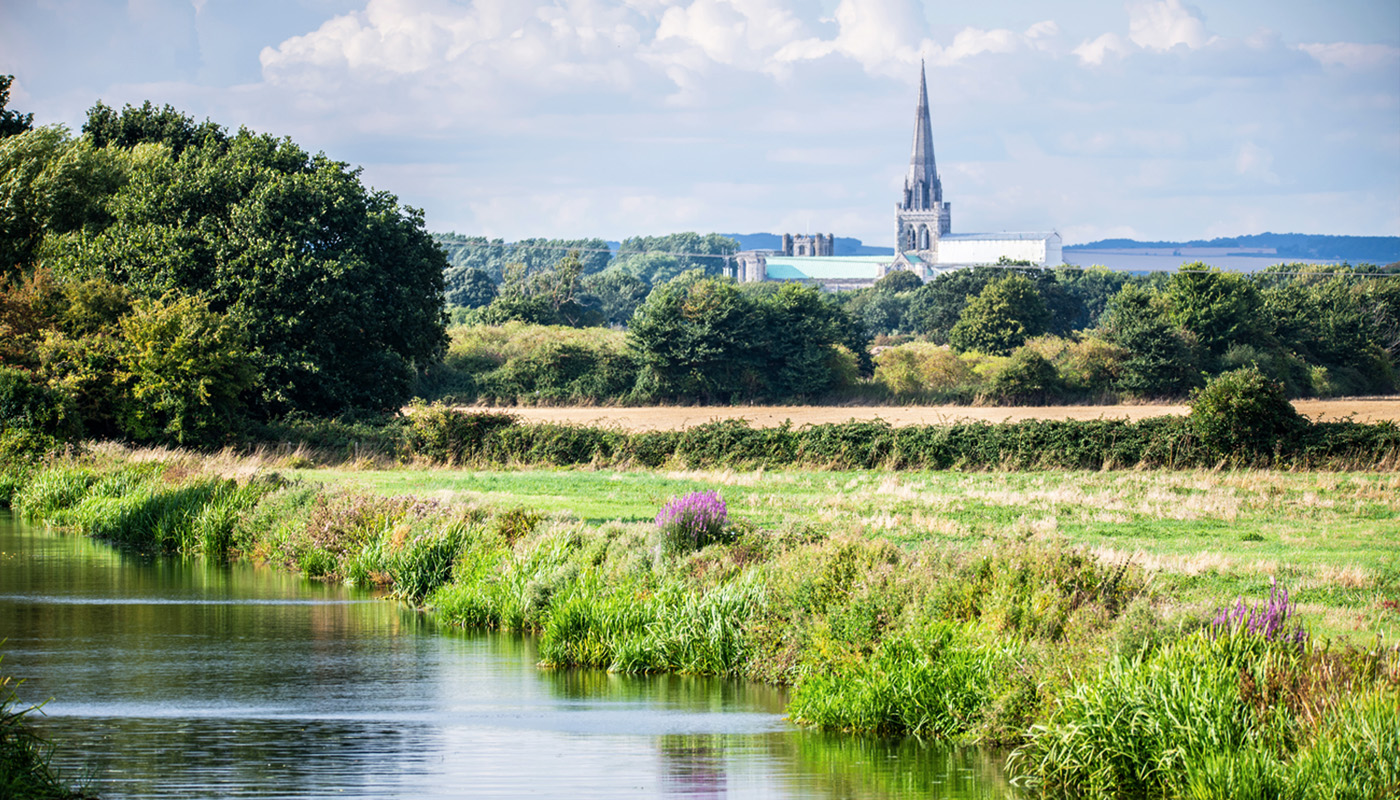Highlights from the fourth day of World Water Week.
Communication played a prominent role across presentations during day four of the conference. Information overload and contrasting advice is inhibiting effective decision-making in the boardroom and in public office.
A session outlining a recent report from the UN – Blueprint for Acceleration: Sustainable Development Goal 6 Synthesis Report on Water and Sanitation 2023 – is useful context. Acknowledging that progress on SDG 6 is ‘alarmingly off-track’, it provides a concise guide to delivering concrete results and as such is a forward-looking collective vision for sustainable and resilient water and sanitation management in the second half of the drive to 2030.
This will be welcomed, given that presentations elsewhere highlighted the lack of a cohesive roadmap and a consistent ‘set of asks’. For example, when businesses seek guidance on what they can do, there are too many people saying too many different things, remarked one speaker, and that’s not to mention yesterday’s highlights on the need for more cohesive fact checking in media outputs. In another session, there was a call to translate ambitious supranational goals into action at grassroots level through enhanced community involvement from the outset.
Of course, integral to effective communication is messaging. It was noted that the media reports widely on disaster and emergency situations, but this should be balanced with stories about prevention and success too.
Top sessions
Water in Business: Driving Change in the Boardroom
Speakers: Melissa Dogo – Swedish Water House at SIWI , Jehanne Fabre – Danone and Aude Farnault – OECD
Attended by: Neil Pendle – Managing Director, Rebecca Gale – Sustainability Director, Mike Callis – Business Development Manager – Waterscan
Many businesses have still not grasped the value that water has to their business and are therefore failing to engage on the matter. This is largely driven by two things: investment and communication. One speaker suggested that “99% of investment is going in the wrong direction, so water is far from receiving the attention that it deserves.” Another highlighted that there’s a gap in understanding because of the language used around water. Regardless of the cause, all Boards need to clearly understand the business case for action. This involves mapping risks in such a way that water dependencies and variables such as volume/spend and so on, can be clearly identified and actions prioritised. Data and research from CDP is helping to quantify risks to business value. Ultimately, bringing water into the boardroom is about language, value and finance.
Key takeaways
- Improving water sustainability is impossible without engaged business leadership.
- Board members aren’t water experts, but they have a clear direction to follow so build a business case that resonates with this.
- A new language around water is needed – one that everyone can understand.
Shut down the water supply for one week and see if they won’t act!
To read more about this session, take a look at our day 4 focus report by Neil Pendle.
Nature-Based Solutions to Strengthen Urban Climate Resilience: Implementation-Pathways
Speakers: Sarantuyaa Zandaryaa – UNESCO, Amanda Gcanga and Aklilu Fikresilassie – World Resources Institute, and panel members
Attended by: Eleanor Matthews – Retail Service Analyst, Waterscan
Nature-based solutions (NbS) will play a significant role in strengthening urban climate resilience in terms of reducing vulnerability to storms, rising sea levels, erosion and salination, while creating climate resilient water supplies. However, city planners are encountering challenges in conceptualising and implementing NbS projects which need to be overcome by creating awareness, building capacity, developing adequate policies and regulations and both long-term maintenance and funding strategies.
Key takeaways
- Nature-based solutions can play an important role in increasing a city’s resilience to climate change, but they require a systemic and holistic approach to overcome current barriers to success.
- Nature-based solutions need to be specific to each area, scale and timescale: there is not a ‘one size fits all’ approach.
- The current dependency on grey urban infrastructure needs a drastic shift to grey-green and grey-blue to realise full economic, social, and environmental benefits.
It’s crucial that projects are bespoke to the area with clear goals.
Building Water Stewardship through Innovation
Speakers: Carolina Garcia – AB InBev and Will Sarni – Water Foundry
Attended by: Claire Wilby – Account Manager, Waterscan
The private sector, which is responsible for the biggest water impact globally, has a responsibility to invest in water innovation regardless of return on investment criteria. Further, the private sector can innovate faster and with more flexibility than the public sector, due to the availability of capital and scale of operations through supply chains. AB InBev’s 100+ Accelerator scheme launched in 2018 and has since welcomed Coca Cola, Unilever and Colgate Palmolive to the initiative. By publishing challenges and seeking competitive solution responses, the collective hopes to achieve transformational impacts.
Key takeaways
- The private sector cannot wait for policy – it needs to move more quickly.
- Many easy wins have been tackled – companies now need to be creative to solve the harder problems – this involves collaboration and investment in innovation.
- Generalist investors don’t understand much about water and are therefore unlikely to drive action alone. The Market Opportunity for Investment is approximately $6.8billion.
Sustainability sense and business sense are not mutually exclusive.
Day four in numbers
- Agriculture consumes 70% of fresh water and gives rise to 50% of emissions globally.
- Cities occupy just 3% of the Earth geographically, yet they are home to over 50% of its population. By 2050, 2/3 of the global population will be living in urban areas.
- 80% of wastewater worldwide is discharged to the environment untreated. Treating the remaining 20% creates the same amount of CO2 as the entire worldwide shipping industry.
- In most sectors the cost of action is around 5x less than the cost of risks resulting from inaction.
Final thoughts
Unfortunately, it remains the case that many still do not believe water to be a problem that needs to be addressed at a strategic or operational level. To change mindsets, language needs to change too. Carbon has been better marketed and is well understood, so aligning water with other environmental sustainability issues is very important.




